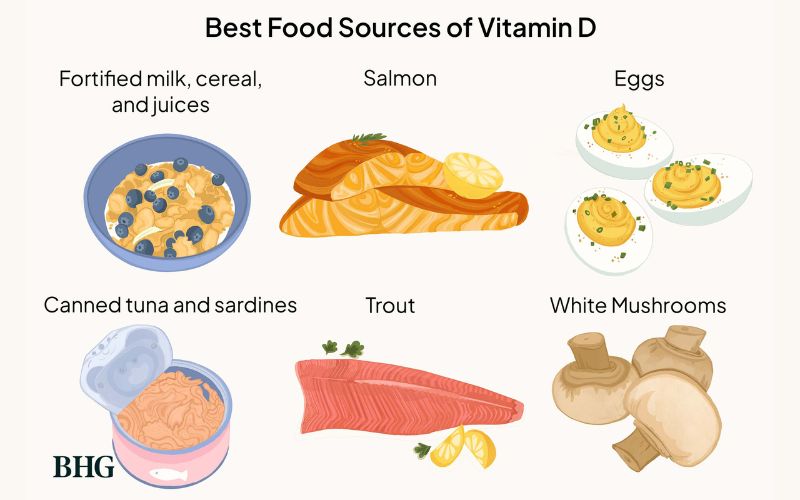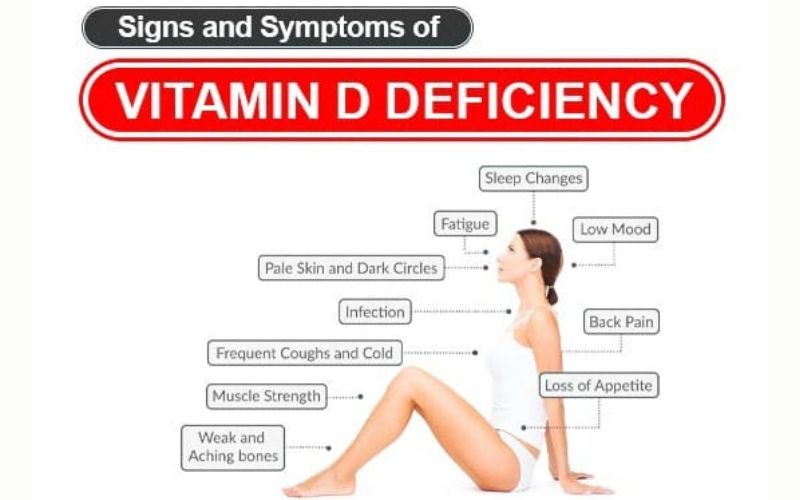Vitamin D, often known as the “sunshine vitamin,” plays a vital role in maintaining our overall well-being. From supporting bone health to strengthening the immune system, it’s essential to ensure adequate intake of this nutrient, especially through diet. In Pakistan, where lifestyle and dietary habits vary widely, knowing the best Vitamin D-rich foods can help you stay healthy naturally.
Table of Contents
Why Is Vitamin D So Important?
Vitamin D is a fat-soluble vitamin that helps the body absorb calcium and phosphorus — minerals necessary for strong bones and teeth. It also plays a crucial role in immune function, muscle strength, and even mental well-being.
Deficiency in vitamin D can lead to a host of health issues, including:
- Weak bones (rickets in children, osteomalacia in adults)
- Fatigue and muscle weakness
- Increased risk of infections
- Mood disorders, including depression
In countries like Pakistan, despite abundant sunshine, vitamin D deficiency is surprisingly common due to indoor lifestyles, sun avoidance, and limited dietary sources. That’s why identifying Vitamin D-rich foods becomes especially important.
Top Vitamin D-Rich Foods to Include in Your Diet

Let’s explore some of the best food sources of vitamin D that are accessible and effective.
Fatty Fish
Fatty fish such as salmon, mackerel, sardines, and tuna are among the richest natural sources of vitamin D. A single serving of cooked salmon can provide more than half of your daily requirement. Not only are they great for your heart, but they’re also ideal for maintaining strong bones.
Egg Yolks
Egg yolks are another easily accessible and affordable source of vitamin D. They can be incorporated into a variety of meals — from breakfasts to baked dishes. Choose free-range or pasture-raised eggs for a higher nutrient content.
Fortified Foods
Many everyday items are now fortified with vitamin D to help prevent deficiencies. These include:
- Fortified milk and dairy products
- Breakfast cereals
- Orange juice
- Plant-based milk (soy, almond, oat)
Check product labels to ensure you’re choosing items fortified with vitamin D.
Mushrooms
Mushrooms, especially those exposed to sunlight during growth, can naturally produce vitamin D. Varieties like maitake and UV-exposed portobello are excellent vegetarian sources. This makes them an essential food for people on plant-based diets.
Liver and Cod Liver Oil
Organ meats like beef liver and traditional supplements such as cod liver oil are potent sources of vitamin D. However, due to their strong taste and high vitamin A content, they should be consumed in moderation.
Cheese
Certain types of cheese, especially those made from whole milk, contain small amounts of vitamin D. Though not as potent as fatty fish or fortified products, they can still contribute to your daily intake when included as part of a balanced diet.
How Much Vitamin D Do You Really Need?
The recommended daily allowance (RDA) for vitamin D varies by age and health conditions. For most adults, the daily requirement is around 600–800 IU (International Units). Older adults, pregnant women, and individuals with darker skin may need more due to reduced natural production or absorption.
Combining Vitamin D-rich foods with sensible sun exposure and, if necessary, supplements, ensures your body maintains adequate levels.
Vitamin D Absorption: What You Should Know
Eating Vitamin D-rich foods alone isn’t enough — your body also needs healthy fats to absorb this fat-soluble vitamin effectively. Pair your vitamin D sources with healthy fats like olive oil, avocado, or nuts for better absorption.
Additionally, magnesium plays a role in vitamin D metabolism. Foods like leafy greens, seeds, and whole grains help improve the bioavailability of vitamin D.
Common Signs of Vitamin D Deficiency

If you’re not getting enough vitamin D, you might experience symptoms such as:
- Chronic fatigue
- Frequent illnesses or infections
- Bone or back pain
- Mood swings or depression
- Hair loss
If you suspect a deficiency, consult a healthcare provider. They might recommend a blood test and suggest increasing your intake of Vitamin D-rich foods or starting a supplement.
Supporting Your Health Naturally in Pakistan
In Pakistan, food choices vary by region and economic access, but plenty of local options exist to meet your vitamin D needs:
- Fresh fish from coastal regions
- Farm-fresh eggs and dairy
- Locally grown mushrooms
- Fortified products increasingly available in urban markets
By being mindful of these choices, you can enhance your daily diet with Vitamin D-rich foods without relying solely on supplements.
Frequently Asked Questions (FAQs)
What is the best time for sun exposure to get vitamin D naturally?
The best time for sunlight exposure is between 10 AM and 3 PM. Aim for about 10–30 minutes, depending on your skin tone, a few times a week.
Can vegetarians get enough vitamin D from food?
While fewer vegetarian options exist, vegetarians can still get vitamin D from fortified foods, mushrooms, and supplements as needed.
Is it safe to take vitamin D supplements daily?
Yes, but always consult your doctor for the right dosage, especially if you have any existing medical conditions.
How do I know if I have vitamin D deficiency?
Common symptoms include fatigue, bone pain, and frequent illness. A blood test is the most accurate way to determine deficiency.
Are children in Pakistan at risk of vitamin D deficiency?
Yes, especially those with limited sun exposure and poor diets. Pediatricians often recommend vitamin D drops for infants and growing children.
Conclusion
Incorporating Vitamin D-rich foods into your diet is a powerful and natural way to support your immune system, bone health, and overall well-being. Whether you choose fatty fish, fortified products, or mushrooms, being proactive about your intake makes a noticeable difference — especially in Pakistan’s diverse climate and dietary landscape.
If you’re looking to explore trusted supplements or health-boosting products tailored to your needs, visit https://nutritionalworld.com.pk/ for a curated selection of wellness essentials.





















